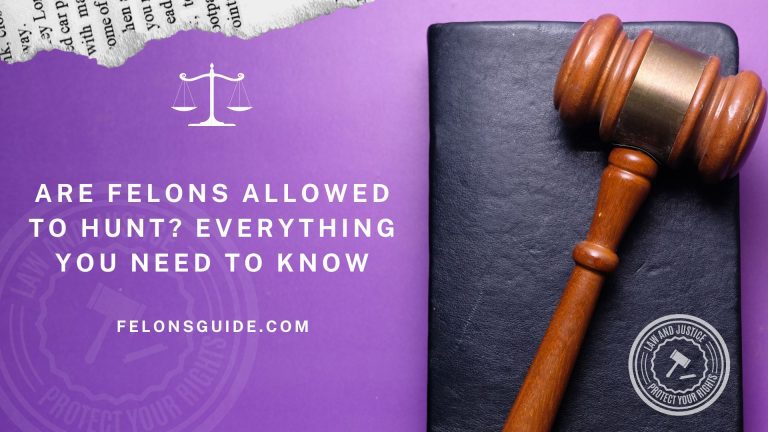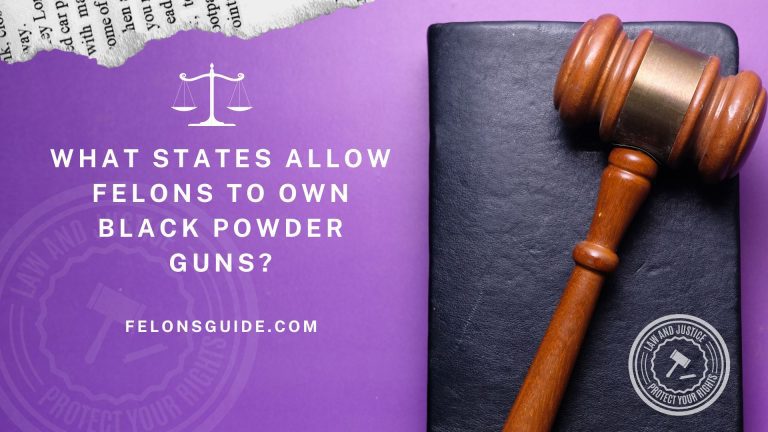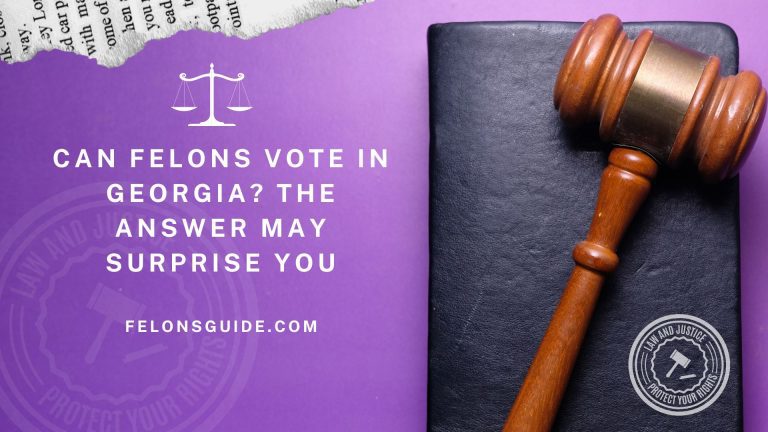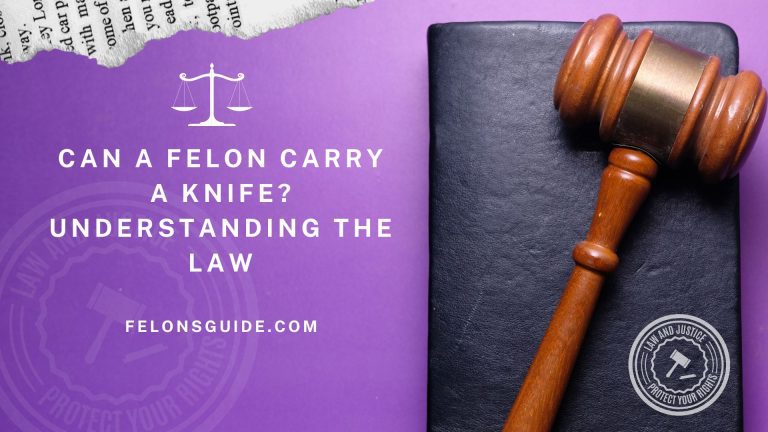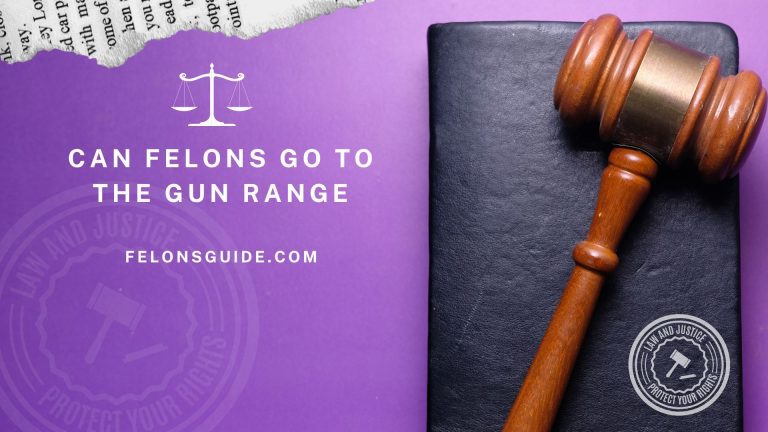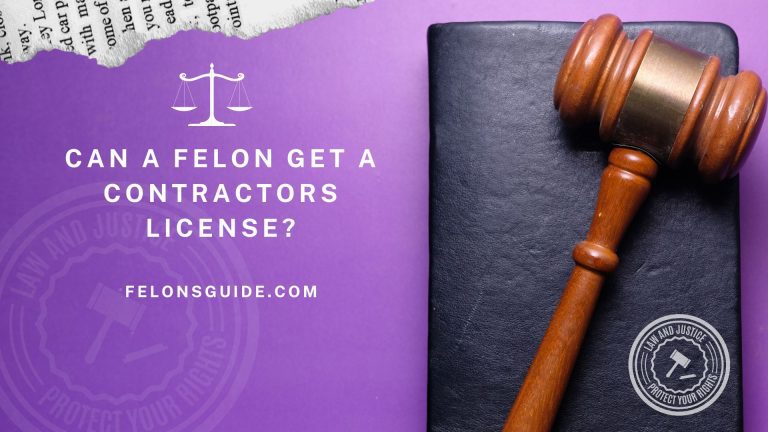What Rights Do Felons Lose in New York?
Being convicted of a felony in New York can have far-reaching consequences that extend beyond the duration of incarceration. Felonies are serious crimes, classified into various categories based on their severity. In this article, we will explore the rights that individuals forfeit upon a felony conviction in New York, as well as the steps to take when facing such charges. This guide aims to provide valuable information to felons seeking to understand their rights and legal options.
How Are Felonies Categorized in New York?
In New York, felonies are classified into five main categories, ranging from Class A to Class E. Class A felonies are the most severe and can lead to life imprisonment, while Class E felonies carry lesser sentences. The classification is determined based on the gravity of the crime committed, and each category has its distinct penalties.
Also Read: Does PAM Transport Hire Felons? Find The Real Answer
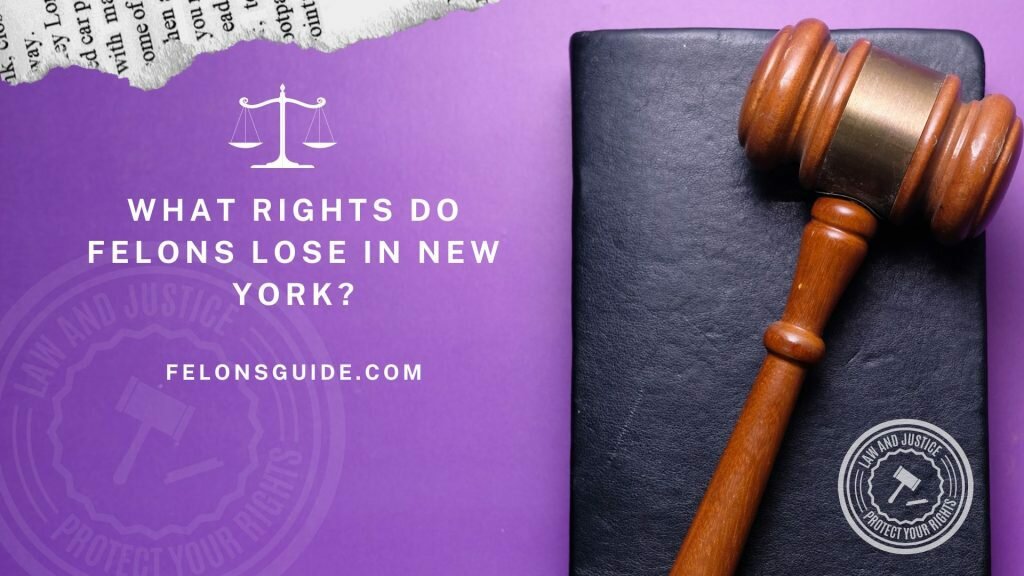
What Rights Do You Lose After a Felony Conviction?
A. Right to Vote if Still Incarcerated:
One of the rights that felons lose upon conviction is the right to vote. While incarcerated, individuals are temporarily stripped of their voting privileges. However, it’s essential to note that these rights can be restored upon completion of the sentence and parole.
B. Right to Use, Purchase, or Possess a Firearm:
Under federal and state law, felons are prohibited from owning, purchasing, or possessing firearms. This restriction is in place to ensure public safety and prevent potential misuse of weapons.
C. Right to Serve on a Jury:
Felons lose the right to serve on a jury. This exclusion is due to the assumption that a felony conviction might impact an individual’s impartiality and ability to serve fairly as a juror.
D. Eligibility for Federally-Funded Housing:
Felony convictions can affect an individual’s eligibility for federally-funded housing programs. Certain housing authorities may have policies that restrict felons from residing in government-assisted housing.
E. Driving Privileges:
In some cases, felony convictions may lead to the suspension or revocation of driving privileges, depending on the nature of the offense committed. This can hinder mobility and daily activities for those affected.
Also Read: Can a Felon Become a Phlebotomist in 2023?
What Should You Do if You Are Facing a Felony Charge?
Facing a felony charge can be overwhelming and daunting. It is crucial to take the following steps:
Seek Legal Representation: Hire an experienced criminal defense attorney to protect your rights and build a strong defense for your case.
Understand Your Charges: Comprehend the charges brought against you, their potential consequences, and the evidence presented by the prosecution.
Gather Evidence: Collect any relevant evidence that could support your defense and challenge the prosecution’s case.
Consider Plea Bargaining: In some instances, a plea bargain may offer a reduced sentence or lesser charges. Consult with your attorney about this option.
Can Felony Charges Be Dismissed?
Yes, felony charges can be dismissed, but it depends on various factors. A skillful attorney may identify procedural errors, insufficient evidence, or other legal weaknesses in the prosecution’s case, leading to possible dismissal. Additionally, some diversion programs or pre-trial interventions may offer alternatives to prosecution for certain non-violent offenses.
Conclusion:
A felony conviction in New York entails the loss of certain rights and privileges. Understanding these consequences is essential for felons to navigate their post-conviction lives effectively. If facing a felony charge, seeking legal guidance and exploring the potential for dismissal or alternative resolutions can be crucial steps toward a better outcome. Remember, everyone has the right to defend themselves and seek a fair and just resolution in the legal system.
